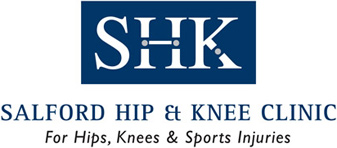Hip Surgery
You may have had pain in your hip for a few days, or put up with it for many years. I know how disabling it can be. I will help you find the most effective solution for your problem.
Hip pain can be from a variety of structures in and around the joint itself. The cartilage in the hip can become worn out because of daily wear and tear, or previous injury to the joint.
Sometimes, pain can arise from the bone or soft tissues (muscles, ligaments or tendons) around the hip.
Occasionally, it may not be clear whether the pain is actually coming from the hip or the spine.
Whatever the case, following the consultation, I will examine you and conduct any necessary investigations promptly to help reach a diagnosis. We can then discuss any treatment you may require.
Often, you may require non-operative treatment such as pain killers or an injection. I do not offer unnecessary operations as all operations have associated risks. If an operation is required, please be reassured that this would only be offered if it is felt to be a safe and reasonable option.
For hip replacement surgery, I use the Exeter Hip System, implants which have been around for more than 40 years, with unparalleled results.
Most patients will stay in hospital for 2-3 days following a hip replacement, though some may need to stay a little longer. Equally, some patients go home the day after surgery.
There will be some restrictions to activity levels for 6-12 weeks after hip replacement surgery and I will see you in clinic about 2 months after surgery and then again at the 12 months stage to make sure that you are doing well.
Knee Surgery
Knees symptoms can be varied. Sometimes people experience sudden giving way or instability which may or may not be associated with pain. You may get swelling around or within the knee due to fluid accumulation, also known as an effusion.
There can be damage to the cartilage cushioning the knee (meniscus) or wear and tear of the cartilage covering the joint surfaces which can result in arthritis. Fluid accumulating within the joint can be the result of injury or irritation indicating an underlying abnormality.
At consultation, examination of the knee provides valuable information that guides further investigations, usually with X-ray, though MR scan may also be required.
If meniscus cartilage is damaged keyhole surgery can be done to repair or remove damaged cartilage.
In patients with an arthritic knee, a steroid injection can relieve pain in the medium term. Keyhole surgery can also be useful in arthritic knees. If pain killers are ineffective, a knee replacement may be a reasonable option to relieve symptoms.
I use the PFC Knee Replacement, which has been available for more than 30 years and is one of the most widely used implants in the world.
Following surgery, the enhanced recovery programme is especially useful in helping early mobilisation and preventing stiffness. There are no specific restrictions following surgery. I will see you in clinic about 2 months after surgery and then again at the 12 months stage to make sure that you are doing well.



